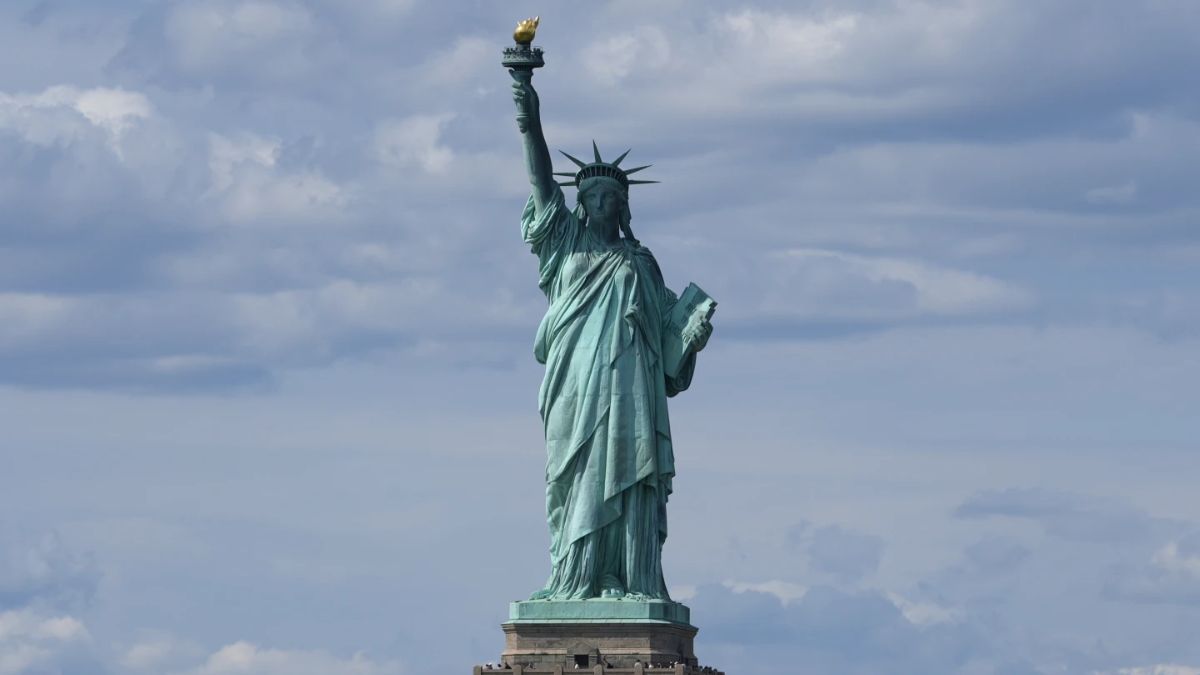A French politician is in the limelight for his recent and rather controversial statement. He has called for the US to return the Statue of Liberty , presented by the French people as a gift in 1884.
Raphaël Glucksmann, a member of the European Parliament and co-president of a small left-wing party in France, has claimed that the US is not worthy of the monument any more and return it to France.
Speaking to supporters, Glucksmann said, “Give us back the Statue of Liberty. We’re going to say to the Americans who have chosen to side with the tyrants, to the Americans who fired researchers for demanding scientific freedom. ‘Give us back the Statue of Liberty.’ We gave it to you as a gift.”
“It was our gift to you. But apparently you despise her. So she will be happy here with us,” Glucksmann said. The speech was met with thundering applause from his supporters on Sunday (March 16).
The White House dismissed French concerns, demanding continued gratitude for past wartime aid especially during the World War I and World War II.
To this, Glucksmann retorted with “eternal” gratitude, but asserted Europe’s readiness to assume leadership of the “free world.” He concluded by emphasising the universal symbolism of the Statue of Liberty.
“No one, of course, will come and steal the Statue of Liberty,” he wrote in X posts. “The statue is yours. But what it embodies belongs to everyone.”
Can France claim the statue
The United Nations’ cultural arm, Unesco, has clarified that the iconic monument is US government property.
The Statue of Liberty was conceived as a significant expression of friendship between France and the United States, designed to celebrate the 100th anniversary of the 1776 Declaration of Independence.
But the France-Prussia War in 1870 diverted the energies of the monument’s designer, French sculptor Frédéric-Auguste Bartholdi.
The gift also took time to be funded, with a decision made that the French would pay for the statue and Americans would cover the costs of its pedestal. Transported in 350 pieces from France, the statue was officially unveiled on October 28, 1886.
What is the French government’s stance?
Glucksmann has not found support from the French government led by Emmanuel Macron to help him make his challenge come true.
Currently, the French president is navigating a delicate balance — seeking to collaborate with Trump and soften some of his policy changes while simultaneously resisting certain White House moves, particularly Trump’s tariff increases.
Macron has let his prime minister, François Bayrou, play the role of being a more critical voice. Bayrou tore into the “brutality” that was shown to Ukrainian President Volodymyr Zelenskyy during his White House visit and suggested that Trump’s administration risked handing victory to Russia when it paused military aid to Ukraine.
Glucksmann’s party has been even more critical, posting accusations on its website that Trump is wielding power in an “authoritarian” manner and is “preparing to deliver Ukraine on a silver platter” to Russia.
In his speech, Glucksmann referenced New York poet Emma Lazarus’ words about the statue, the “mighty woman with a torch” who promised a home for the “huddled masses yearning to breathe free.”
“Today, this land is ceasing to be what it was,” Glucksmann said.
What is the White House saying?
When questioned about Glucksmann’s comments, White House press secretary Karoline Leavitt clarified that the US would “absolutely not” be relinquishing the Statue of Liberty.
“My advice to that unnamed low-level French politician would be to remind them that it’s only because of the United States of America that the French are not speaking German right now,” Leavitt said Monday, apparently referencing the U.S. fight with Allied powers to free France from Nazi occupation during World War II and alongside France during World War I. “They should be very grateful.”
But the debt of gratitude runs both ways. Leavitt skipped past France’s key role in supporting the future United States during its war for independence from the United Kingdom.
In his subsequent follow-up, Glucksmann said that his call for Lady Liberty to travel back across the Atlantic to France had been intended as “a wake-up call.”
“We all in Europe love this nation to which we know we owe so much,” he posted. “It will rise again. You will rise again. We are counting on you.”
With inputs from AP
)